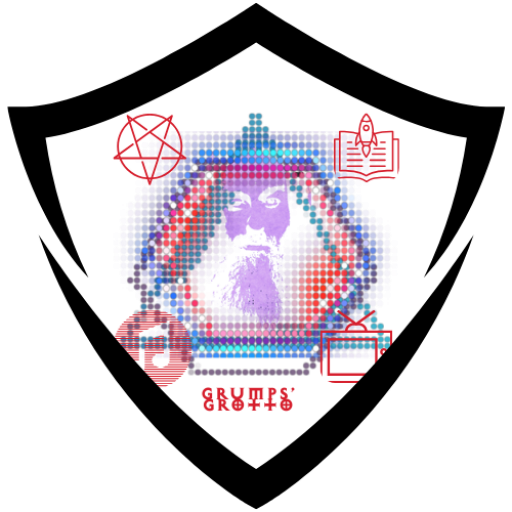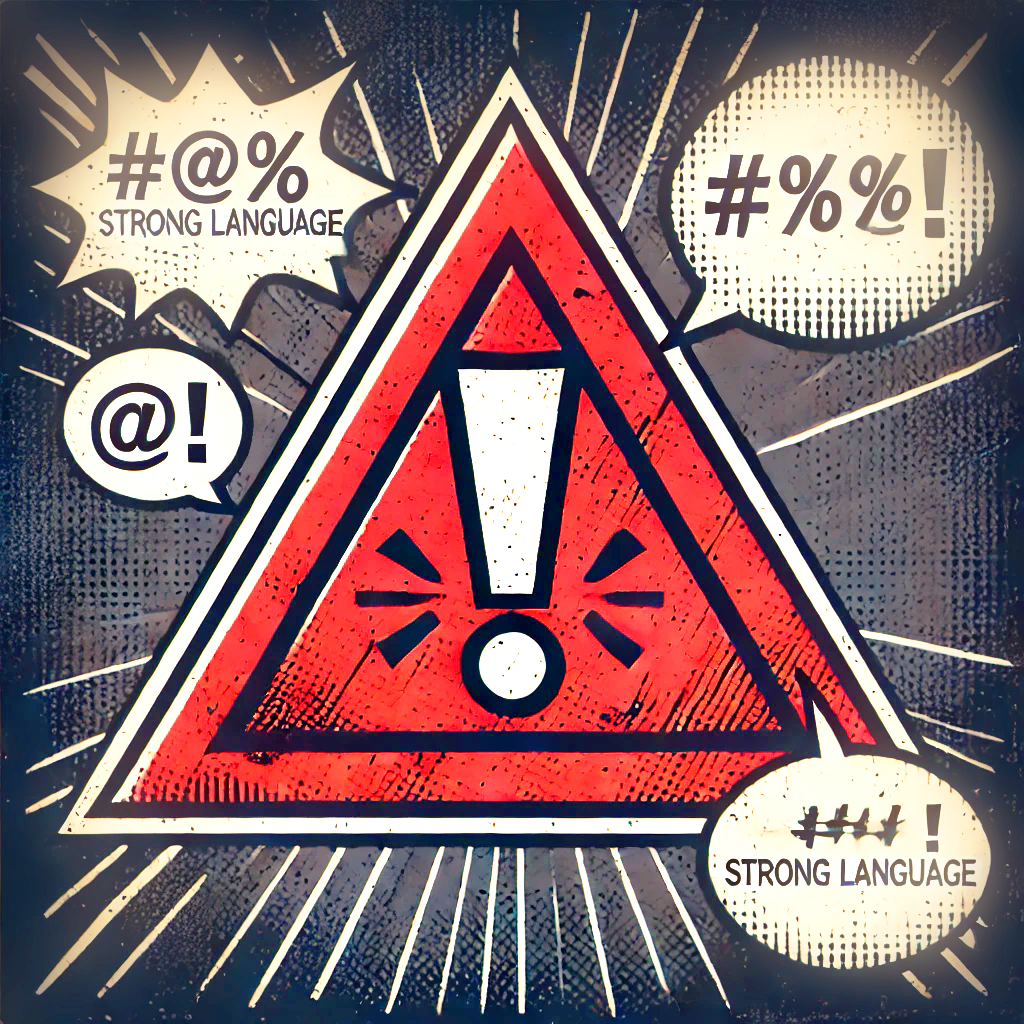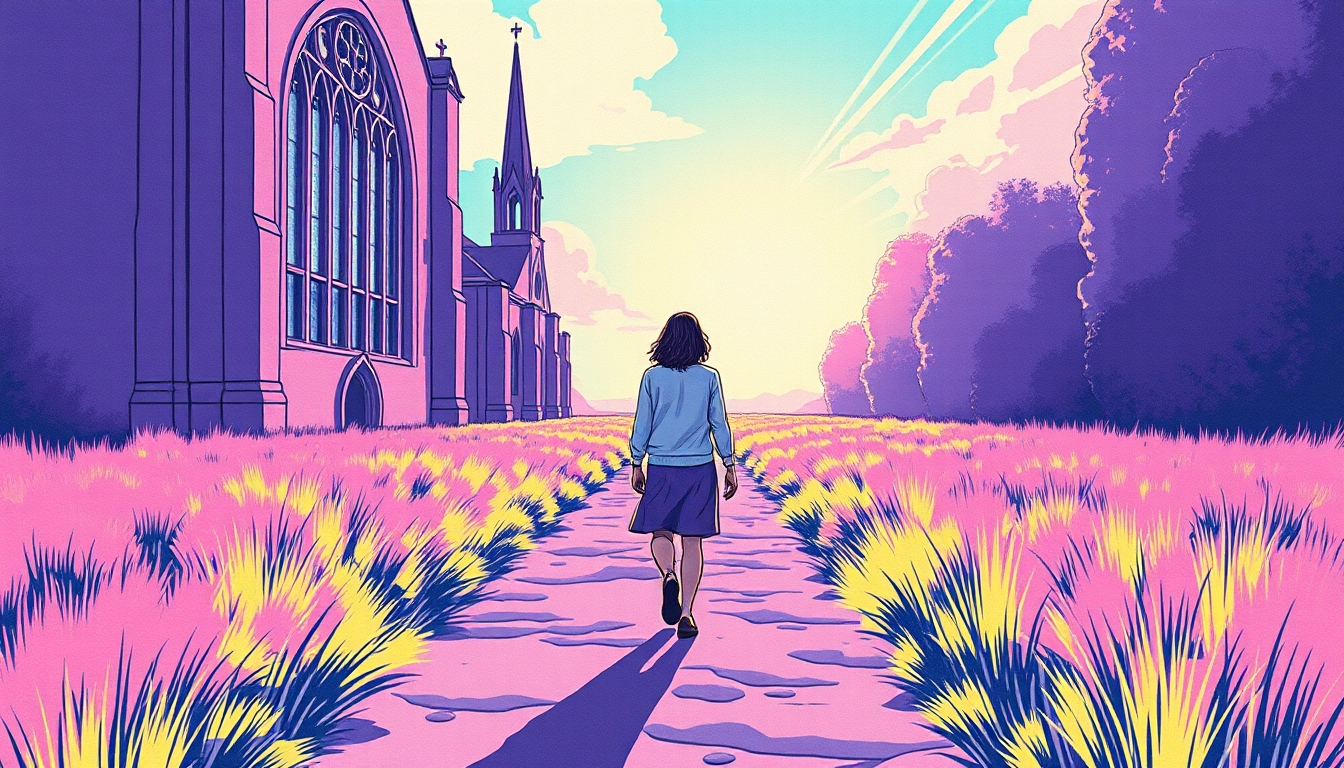Ah, the grand departure from the cozy confines of organized religion. It’s a journey as ancient as humanity’s curiosity itself, or at least as old as that “forbidden fruit” incident that got us into this mess. There’s something almost poetic about humanity’s endless drive to question the very systems that promise to answer everything—like a cat batting around a ball of yarn, except in this case, the yarn is centuries of doctrine, tradition, and guilt.
Now, let’s not sugarcoat this. Moving from devout disciple to free-thinking skeptic isn’t exactly a carefree stroll through the park. It’s more like a trek through a desert of existential angst, with the occasional oasis of relief—quickly followed by yet another sandstorm of self-doubt and awkward family gatherings. Yes, those dinners, where someone inevitably asks, “Have you thought about where you’ll spend eternity?” while you’re just trying to get through your mashed potatoes.
At first, the shift feels like pulling a loose thread from a sweater. One moment, you’re happily singing hymns, reciting creeds, and nodding along with the rest of the flock; the next, you’re yanking at that thread, watching the whole thing unravel as you question everything. What if that omnipotent, omniscient, ever-watchful figure isn’t out there tallying up your good deeds and minor infractions? And that whole “eternal damnation” business? You start to wonder if it’s less about divine justice and more about religious marketing at its finest—scaring you straight into submission.
Let’s talk about the struggles—oh, they’re plentiful. First, there’s the internal battle, the one that keeps you up at night. Years, maybe decades, of indoctrination don’t just vanish because you had an epiphany in your local coffee shop. No, that internal monologue, that little voice whispering threats of cosmic punishment and eternal fires? That voice can be persistent, creeping up in the quietest moments, reminding you of everything you were taught about faith, loyalty, and the alleged dangers of independent thought.
Then comes the social fallout. Friends, family, and anyone you once shared a pew with might see your “loss of faith” as a betrayal of the highest order. The reactions range from mild concern to full-blown interventions, where they sit you down for a heartfelt lecture on “finding your way back.” Suddenly, you’re not just the person who skipped church last Sunday—you’re a threat to their worldview. Every holiday dinner becomes an opportunity for someone to “save” you, armed with pamphlets and well-meaning clichés like, “But what about your soul?” Ah, the joy.
But here’s the kicker: as messy as this whole process is, leaving organized religion can be one of the most liberating experiences of your life. Once you break free from the chains of dogma and guilt, it’s like the whole world opens up. You’re no longer shackled to a list of “shoulds” and “should-nots” laid out in ancient texts. Instead, you get to explore, to wonder, to dig deep into the questions that actually matter to you. No more spoon-fed answers. You’re free to think, to question, to use that brain of yours without worrying that a lightning bolt’s going to strike you down.
Of course, with great freedom comes great responsibility. (No, not the Spider-Man kind—though if you’re reading this, Uncle Ben, take note.) The comforting framework that religion provided is gone, and in its place, you have a blank slate. You’re now the architect of your own meaning, the one who decides what life is all about. There’s no cosmic referee keeping score—you’re it. For some, that’s exhilarating. For others, it’s terrifying. After all, it’s one thing to ditch an outdated belief system; it’s another to build something meaningful in its place.
And let’s clear up a common misconception: leaving religion doesn’t mean leaving spirituality behind. It’s about reclaiming spirituality on your own terms, peeling away the layers of doctrine to find what resonates with you. Maybe it’s the wonder you feel watching a meteor shower, the peace of a quiet walk in the woods, or the thrill of learning something new just because it excites you. You’re forging a connection with the universe that isn’t mediated by ancient laws or divine intermediaries. It’s raw, personal, and it’s yours.
To anyone out there toeing the line between faith and free thought, here’s a bit of advice: embrace the uncertainty. Question everything, especially the things you were told never to question. Challenge the status quo, poke at it, see if it holds up under scrutiny. And remember, you’re not abandoning “truth” or “meaning.” You’re diving headfirst into a search for your own truth, even if it means veering off the well-trodden paths of tradition.
The universe is a vast, mysterious place, filled with endless possibilities and yes, a whole lot of unanswered questions. And that’s okay. In fact, it’s more than okay—it’s exhilarating. Because in the end, the beauty of this journey lies in the not knowing, in the endless exploration, and in the simple freedom to think for yourself. So go forth, fellow wanderer, and never stop exploring.
Owner of BaedonWebZine and the mastermind behind its content. A versatile individual hailing from The Great American Desert, Henry carries the enduring influences of his upbringing. He wears multiple hats as a writer, graphics manipulator, devoted father, and dedicated geek. His days are spent exploring the world with a relentless quest for understanding, bringing a unique blend of insight and creativity to the site.




Leave a Reply